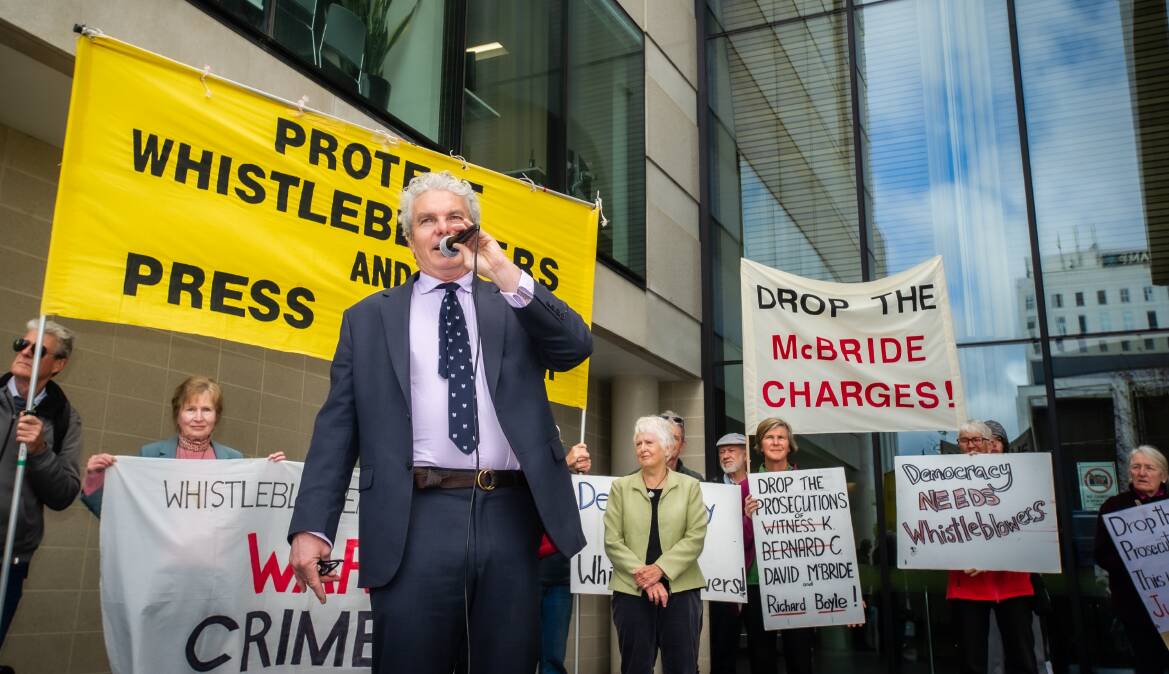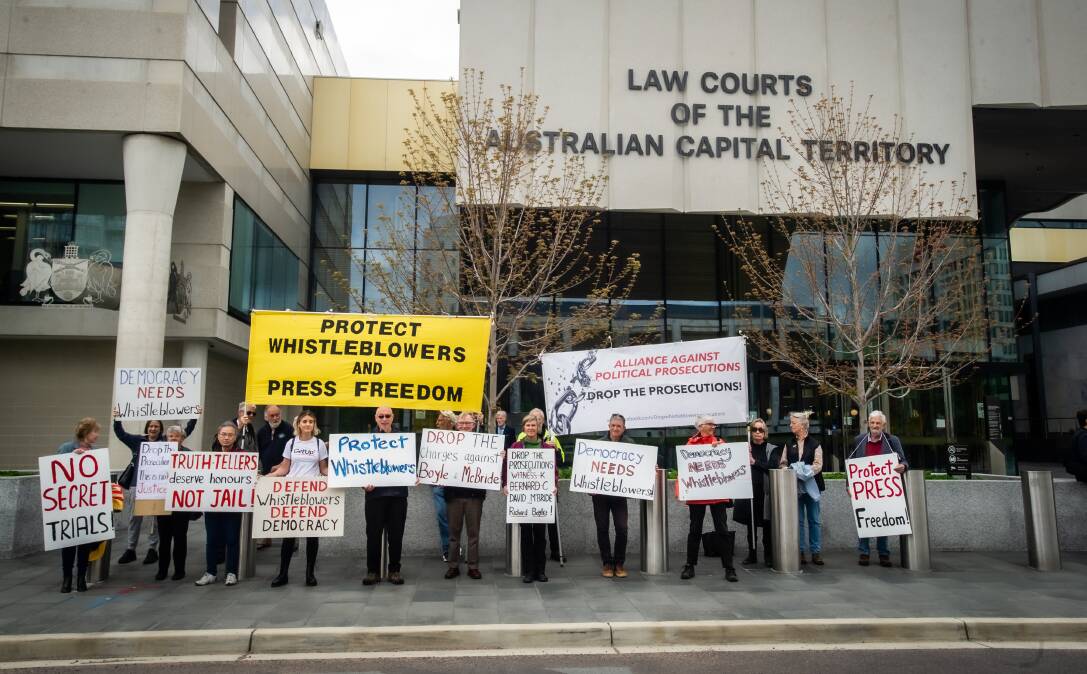
Military whistleblower David McBride is set to face trial after withdrawing his application for prosecution immunity for leaking classified documents about alleged war crimes.
The withdrawal came after a last-minute Commonwealth claim for national security-based immunity against evidence in McBride's bid for protection under whistleblower laws.
McBride fronted the ACT Supreme Court on Thursday for what was set to be a four-day hearing after he pleaded not guilty to five charges: three counts of breaching the Defence Act and one each of unauthorised disclosure of information and theft of Commonwealth property.
The charges were laid after McBride, who was deployed to Afghanistan to serve tours in 2011 and 2013, leaked classified documents about alleged war crimes by Australian defence personnel to the ABC, which then published the 2017 series The Afghan Files.
McBride argued he should be immune from prosecution because his actions were justified under the Public Interest Disclosure Act.
That legislation, enacted by Parliament in 2013, is designed to "protect public officials, and former public officials, from adverse consequences of disclosing information that, in the public interest, should be disclosed".
On Thursday, the Commonwealth made a last-minute public interest immunity claim in respect of some of the material, including two witnesses, in McBride's defence claim.
McBride's barrister, Bret Walker SC, subsequently withdrew the application as the likelihood of success was low without that evidence.
Public interest immunity is a common law doctrine that protects confidential information where disclosure of it would harm the public interest.
This includes information related to various categories, including the security, defence or international relations of Australia; and, the proper functioning of a government.

McBride's leak helped reveal allegations, as published in The Afghan Files, that Australian special forces had engaged in serious misconduct, including the killings of unarmed civilians, in Afghanistan.
A subsequent and long-running investigation by Major-General Paul Brereton, an army reservist and NSW judge, found "credible information" implicating 25 current or former Australian Defence Force personnel in 39 allegedly unlawful killings.
With McBride's application now withdrawn, he is set to face a criminal trial, for which dates have not been set, for the five charges.
Outside court, McBride said he was disappointed in the outcome but felt confident about the upcoming trial.
"I believe I did my duty, I'm happy to be judged on it - my conscience is quite clear," he said.

Another one of his lawyers, Mark Davis, said they were left with little choice after Commonwealth officials claimed immunity.
"Extreme secrecy has covered this entire case and all the working conditions that we labour under but most recently they claimed [public interest immunity]," he said.
"As we walked towards this court, we had ... two legs and two arms and every step we got closer one of those [was] chopped off.
"We walked through the courts this morning and we've lost two witnesses and we've lost evidence. Why go ahead?"
RELATED COVERAGE
- Federal ICAC a 'great step' but whistleblowers still at risk without a protection agency: McBride
- Afghanistan inquiry calls to drop prosecution of whistleblower David McBride
- McBride's prosecution shows 'insidious' side of national security debate: Peter Greste
Kieran Pender, senior lawyer at the Human Rights Law Centre, said "the government's last-minute national security intervention in this case has made it impossible for David McBride to succeed in his whistleblowing defence".
"It is a devastating blow for Australian democracy. It is now unconscionable for the Attorney-General to allow this prosecution to go ahead," Mr Pender said.
"Whistleblowers should be protected, not prosecuted.
"The Commonwealth Director of Public Prosecutions or the Attorney-General must end this unjust case."
Mr Pender, who was in the public gallery during the short court session, said the Australian government "must then get on with fixing whistleblowing law and reckoning with Australia's alleged war crimes in Afghanistan."
Prior to the session, a rally outside court organised by the Alliance Against Political Prosecutions called for the charges against McBride to be dropped.
The defence hearing was set for September 2021 but challenges associated with COVID delayed proceedings.







